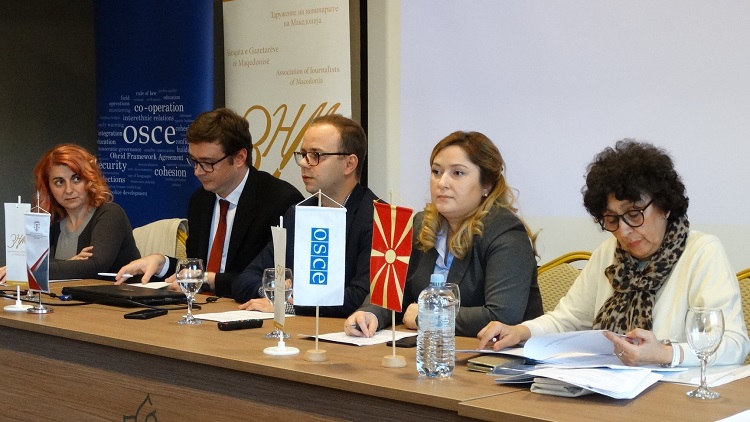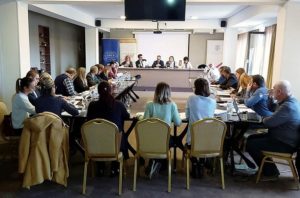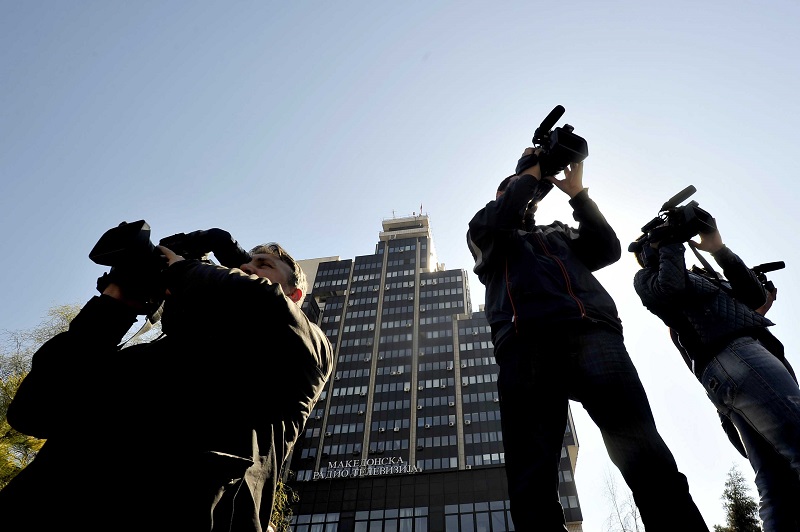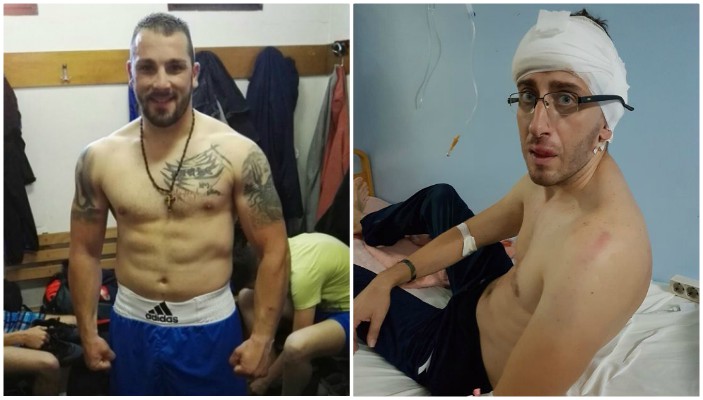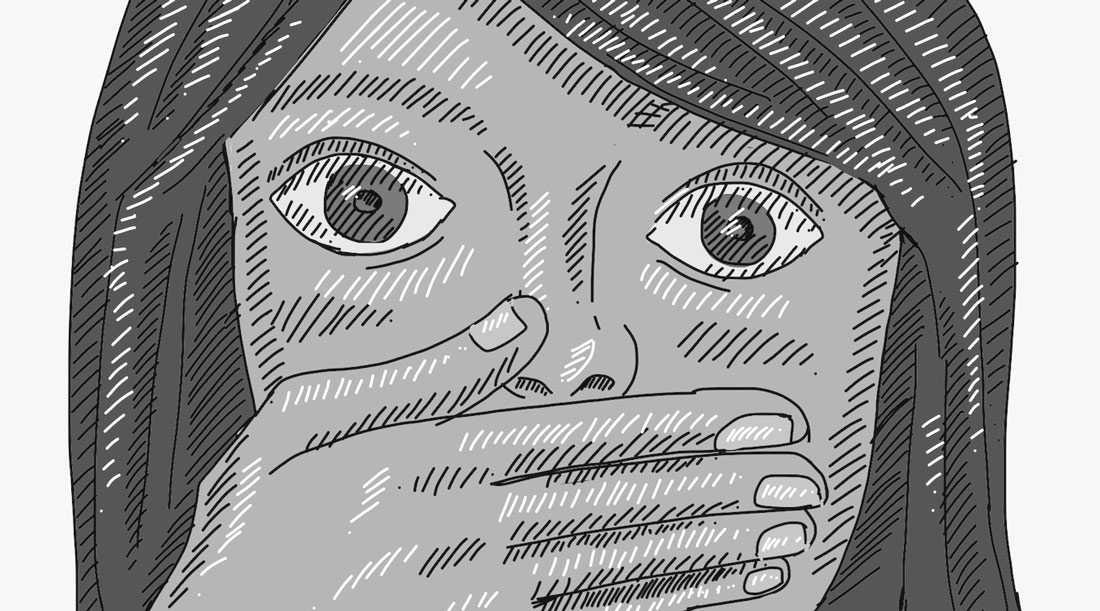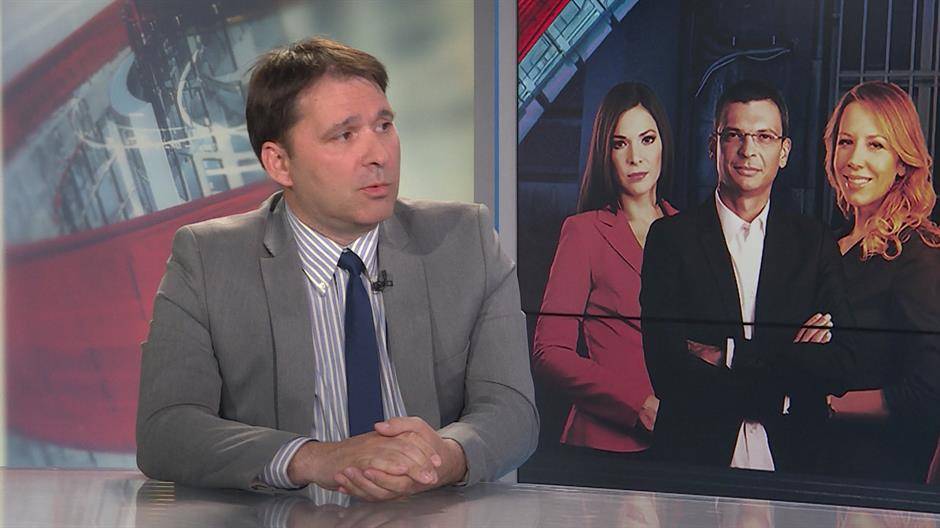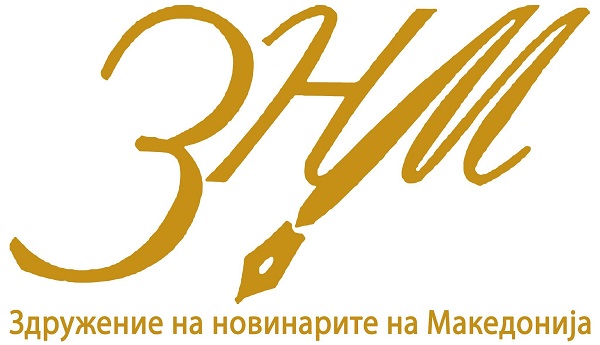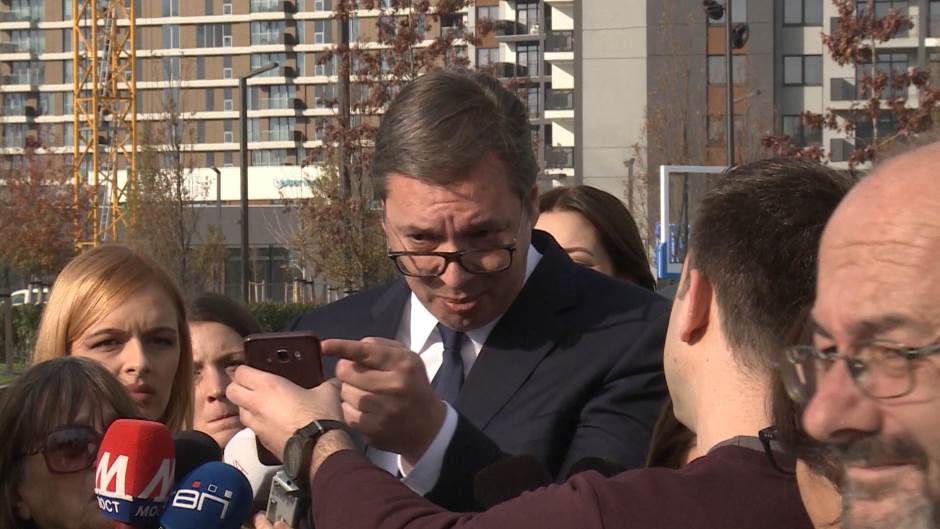BEOGRAD, 25.11.2019. – Govor mržnje i agresivnosti svakodnevno je prisutan u medijima u Srbiji, i to u onim najčitanijim i najgledanijim, ali u javnosti se čini kao da u tim slučajevima niko ne reaguje. Niti je jasno ko je nadležan.
Najnovije istraživanje Centra za profesionalizaciju medija i medijsku pismenost (CEPROM) pokazalo je da osam dnevnih listova i 20 najčitanijih portala u zemlji samo u toku jednog dana objave u proseku 644 teksta koji sadrže neke od elemenata agresivne komunikacije, govora mržnje i senzacionalizma, što znači da svaki medij prosečno objavi 23 takva teksta samo u toku jednog dana.
Istraživanje pod nazivom „Komunikativna agresija u Srbiji 2019“ sprovedeno je u periodu od 15. septembra do 15. oktobra ove godine, a rezultati pokazuju da je u navedenom periodu od mesec dana u najčitanijim štampanim i onlajn medijima u zemlji objavljeno skoro 20.000 tekstova sa elementima agresivne komunikacije, govora mržnje i senzacionalizma.
U Ministarstvu kulture i informisanja ističu da ne pokreću prekršajne postupke kada je u pitanju govor mržnje. Kako navode, članom 75 Zakona o javnom informisanju i medijima propisano je da se idejama, mišljenjem, to jest informacijama koje se objavljuju u medijima ne sme podsticati diskriminacija, mržnja ili nasilje protiv lica ili grupe lica zbog njihovog pripadanja ili nepripadanja nekoj rasi, veri, naciji, polu, zbog njihove seksualne opredeljenosti ili drugog ličnog svojstva, bez obzira na to da li je objavljivanjem učinjeno krivično delo.
„Ovaj član Zakona ima načelan karakter s obzirom na činjenicu da za postupanje protivno navedenoj odredbi nije predviđeno vođenje prekršajnog postupka. Ako se objavljivanjem informacije, između ostalog, povređuje zabrana govora mržnje, moguće je pokrenuti tužbu kojom se može zahtevati: utvrđivanje da je objavljivanjem informacije povređeno pravo ili interes; propuštanje objavljivanja, kao i zabrana ponovnog objavljivanja informacije kao i uklanjanje ili uništenje objavljenog zapisa (brisanje video-zapisa, brisanje audio-zapisa, uništenje negativa i sl). Pravo na podnošenje pomenute tužbe ima lice koje je lično povređeno objavljivanjem informacije, kao i pravno lice čija delatnost ima za cilj zaštitu ljudskih prava u slučaju povrede zabrana govora mržnje (potrebna je lična saglasnost lica na koje se informacija odnosi)“, objašnjavaju u Ministarstvu.
Oni dodaju da Ministarstvo kulture i informisanja uvek osuđuje one tekstove u kojima je iskazan govor mržnje.
Na pitanje šta Ministarstvo radi na prevenciji govora mržnje u medijima, dodaju da u okviru konkursa za sufinansiranje proizvodnje medijskih sadržaja postoji mogućnost za podršku projektima koji se bave upravo istraživanjem prisutnosti govora mržnje u medijima.
Uloga REM-a i Zaštitnika građana
U Regulatornom telu za elektronske medije (REM) navode da su nekoliko primera govora mržnje u medijima analizirali u publikaciji „Medijska regulatorna tela i govor mržnje“ iz 2017. godine, kao i da od tada nisu imali pritužbe na medije po ovom osnovu.
„Pored slučajeva u kojima nacionalna regulatorna tela imaju zakonsku obavezu da upute određeni slučaj nadležnim organima, postoje i drugi načini saradnje. Uz njihovu stručnost i iskustvo, regulatorna tela mogu značajno da doprinesu usvajanju relevantnih zakona, strateških dokumenata i politika, izveštaja na međunarodnim forumima, itd, i to u oblasti govora mržnje i uvredljivog jezika. Imajući u vidu moć medija, posebno televizije i radija, kao i ulogu regulatornih tela da osiguraju nadžor nad primenom zakona i podzkonskih akata, uvid koji regulatorna tela imaju u tokove ponašanja medija može ukazati na ograničenja ili prednosti postojeće ili planirane/željene zakonodavne ili političke inicijative“, ističe se u publikaciji REM.
Konkretniji su u instituciji Zaštitnika građana, koja je pokretala postupke, i to zbog govora mržnje na društvenim mrežama. Oni kažu da Zaštitnik građana redovno prati i beleži medijske objave i priloge u kojima se uočava govor mržnje bilo na nacionalnoj osnovi, bilo zbog nečije seksualne orijentacije, bilo da su u pitanju mizogine i seksističke izjave.
„Institucija se više puta oglašavala saopštenjima, prilikom gostovanja u televizijskim emisijama, u godišnjim izveštajima, pred skupštinskim poslanicima, ukazujući da govor mržnje u javnom prostoru postaje sve učestaliji, i da to lako dovodi do nasilja. Stav Zaštitnika građana je da društvo, pre svega nadležne institucije, moraju odlučnije da se bore za njegovo iskorenjivanje. Mehanizmi za borbu protiv govora mržnje u javnom prostoru dati su normativnim okvirima, koji jasno kažu da govor mržnje nije dozvoljen u javnim nastupima. Važno je da nadležni organi prate poštovanje tih zakona i da sankcionišu svaki govor mržnje, a Zaštitnik građana je tu, da u okviru svojih nadležnosti kontroliše rad državnih organa“, navodi se u odgovoru iz kabineta Zaštitnika građana.
Oni navode da je Zaštitnik građana, primera radi, postupao u slučaju mizoginog sadržaja u emisiji „Novo jutro – Irina i Žika“ na TV Pink od 3. jula 2019. godine. Gosti emisije i voditelji komentarisali su novinske naslove, te je voditelj emisije izjavio „Pa kako samo ku*ve ove Srpkinje, čoveče, po crnogorskom primorju“, a jedan od gostiju: „pa ne, ku*ve su ajde da kažemo svih nacija“. Povodom tih izjava Zaštitnik građana uputio je zahtev REM-u da sprovede postupak kontrole i obavesti Zaštitnika građana o ishodu.
Ocena Saveta regulatora je da „u konkretnom slučaju postoji odgovornost pružaoca medijske usluge za povredu zakonske obaveze, ali da u konkretnom slučaju nije reč o namernom postupanju pružaoca medijske usluge zbog čega nije moguće utvrditi stepen ugrožavanja ili povrede zaštićenog dobra ili pak težinu posledice koja je povredom prouzrokovana“. Savet je na osnovu ove ocene odlučio da u konkretnom slučaju nema osnova da se pružaocu medijske usluge izrekne neka od mera predviđena članom 28 Zakona o elektronskim medijima.
„Imajući u vidu navode izjašnjenja REM-a, od tog organa Zaštitnik građana će zatražiti podatke o broju prijava za TV Pink, razlozima zbog kojih su podnete prijave i merama koje su izrečene ovom emiteru u toku 2018. i 2019. godine“, ističe se u odgovoru Zaštitnika građana.
Prema njegovim navodima, Zaštitnik građana reaguje na osnovu pritužbi građana i sopstvenom inicijativom na osnovu saznanja dobijenih iz različitih izvora, najčešće medijskih sadržaja. Podsećaju da će medijska platforma koju izrađuju sa kolegama iz medijskih udruženja i asocijacija beležiti sve vrste pritisaka i uvreda na račun novinara, između ostalog i one koje u svojoj osnovi imaju govor mržnje. Javna osuda ovakvih sadržaja, poziv nadležnima da reaguju i praćenje njihovog postupanja u pojedinačnim slučajevima, predstavljaće takođe snažan mehanizam u sankcionisanju govora mržnje, smatra Zaštitnik građana.
„Očito je da bi oblast društvenih mreža i komunikacija trebalo urediti na način koji će onemogućiti svaku vrstu govora mržnje. Svedoci smo svakodnevnih izjava anonimnih autora na društvenim mrežama koji sakriveni iza svojih tastatura promovišu agresiju, laž i neodgovorno ponašanje, a da za posledicu, pošto je u oblasti virtuelnog, ne snose odgovornost. Ovakve pojave su pogubne kako za pojedince, tako i za društvo u celini, ne doprinose demokratizaciji javnog prostora, naprotiv zagađuju ga. Umesto toga potrebno je razvijati direktan dijalog, koji će se zasnivati na poštovanju sagovornika i spremnosti da se za izrečeno snosi odgovornost“, napominje se u odgovoru Zaštitnika građana.
Savet za štampu: Govor mržnje najprisutniji u komentarima čitalaca
Žalbi na govor mržnje u medijima bilo je i Savetu za štampu, ali generalna sekretarka ovog samoregulatornog tela Gordana Novaković objašnjava da se u Kodeksu novinara Srbije ista tačka odnosi na diskriminaciju i govor mržnje, pa je žalbi zapravo mnogo više na diskriminaciju, ali recimo da se oko deset odsto ukupnog broja žalbi koje dobiju odnosi na ovu tačku, što u suštini i nije mnogo.
„Na primer, u Bosni je 40 do 50 odsto žalbi vezano za govor mržnje. Nama su se na to najčešće žalile organizacije koje se bave zaštitom ljudskih prava, uglavnom u vezi sa diskriminacijom i govorom mržnje protiv LGBT osoba, Roma ili migranata. Takođe, žalbe se mnogo češće odnose na komentare nego na same tekstove, koje redakcije uglavnom, nakon što im pošaljem žalbu uklone, mada ne uvek. Recimo, primer u kojem nisu hteli da uklone komentare sa svoje Facebook strane je Blic, gde su na sasvim bezazlen tekst o tome kako se premijerka pojavila sa svojom devojkom na nekom prijemu objavljene na desetine najgorih uvreda na račun cele LGBT populacije“, navodi Novaković.
Ona dodaje i da je drastičan slučaj kolumna Bore Đorđevića u Srpskom telegrafu, u kojoj, između ostalog, kaže da bi sve “pedere” poslao u zemlje islama, jer je tamo za to predviđena smrtna kazna.
„Generalno, govora mržnje ima više u komentarima nego u tekstovima, s tim što je nekad, čini se, tekst napisan sa idejom da izazove takve reakcije, odnosno da čitaoci kažu ono što redakcija misli, a ne sme otvoreno da napiše, a nekad to i nema mnogo veze sa tekstom, ali se po spremnosti redakcije da reaguje kad joj se na to ukaže može da proceni da li je u pitanju previd moderatora ili namera“, ocenjuje Novaković.
Sudovi reaguju samo na najdrastičnije prekršaje
Predsednica Komiteta pravnika za ljudska prava YUCOM Katarina Golubović navodi da se govor mržnje očito prepoznaje i sudovi utvrđuju odgovornost za kršenje zabrane govora mržnje onda kada je ogoljen, kada je eksplicitan.
„To je slučaj kada neko targetira pripadnika neke manjinske grupe i iznese stereotipne uvrede. Novinari tabloida koriste takvu vrstu govora. Rame uz tabloide idu i elektronski mediji koji su predmet razmatranja REM-a. Slučaj Milomira Marića i targetiranje profesora zbog njegovog albanskog porekla je samo jedan od primera. Ogoljeni govor mržnje se često nalazi u komentarima čitalaca, a mediji je odgovoran za komentare koji se pojave na njihovoj stranici.
Da podsetim da je pre pola godine upravo Jukom vodio slučaj gde je utvrđena odgovornost urednika jer nije sprečeno objavljivanje komentara koji povećavaju tenzije među građanima Srbije, na taj način što se nacionalna manjina stavlja u nepovoljniji položaj. Reč je o stotinu stereotipnih komentara usmerene protiv albanske nacionalne manjine“, navodi Golubović.
Ona dodaje da je veoma bitno uočiti da se ovi komentari javljaju kao reakcija na tekst koji sadrži sofisticiran govor mržnje, kroz iznošenje nekih informacija koje često ne zaslužuju da budu vesti, a koje postaju atraktivne samim tim što se vezuju za aktere za koje se pretpostavlja da pripadaju nekoj manjinskoj grupi.
„Moram napomenuti da je apsurd da naše pravosuđe ne prepoznaje u ovim tekstovima govor mržnje, koji na sofisticiran način podstiču mržnju, a za šta su dokaz i komentari“, napominje Golubović.
Ona smatra da bi Poverenica za ravnopravnost i Savet za štampu, pored sudova, trebalo da budu efikasnije institucije. One, prema njenom mišljenju, skreću pažnju na slučajeve govora mržnje, i što je najvažnije, imaju mogućnost da šire poruku svim građanima, koje govor mržnje provocira da budu negativno i nasilno nastrojeni.
„Zato je bitno da upravo ova tela budu daleko vidljivija“, zaključuje predsednica Jukoma.



